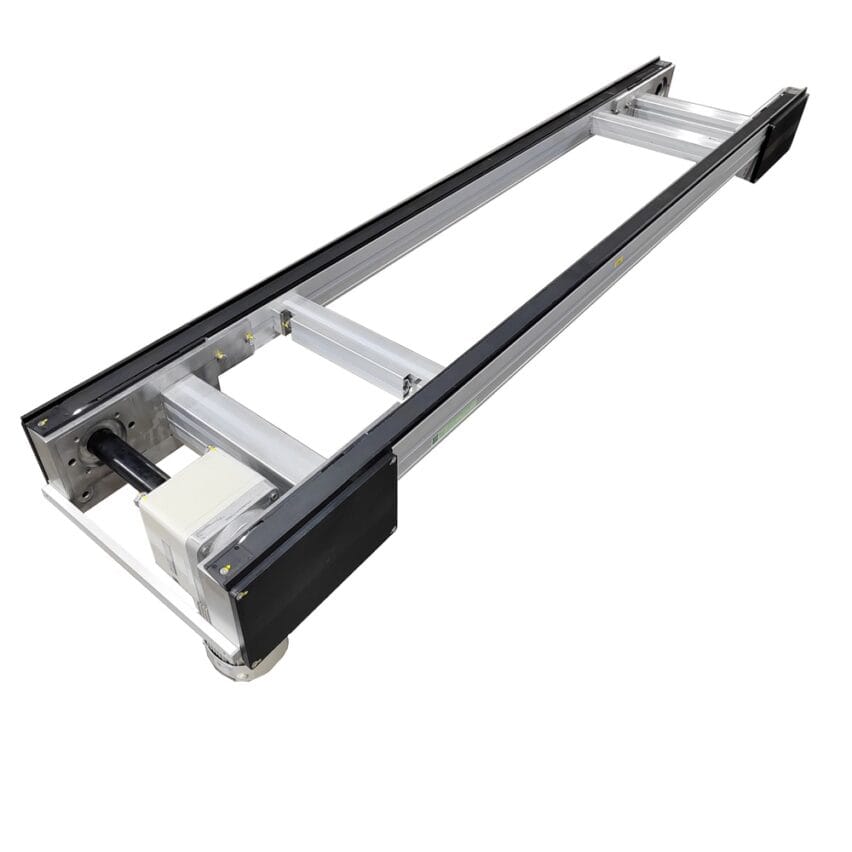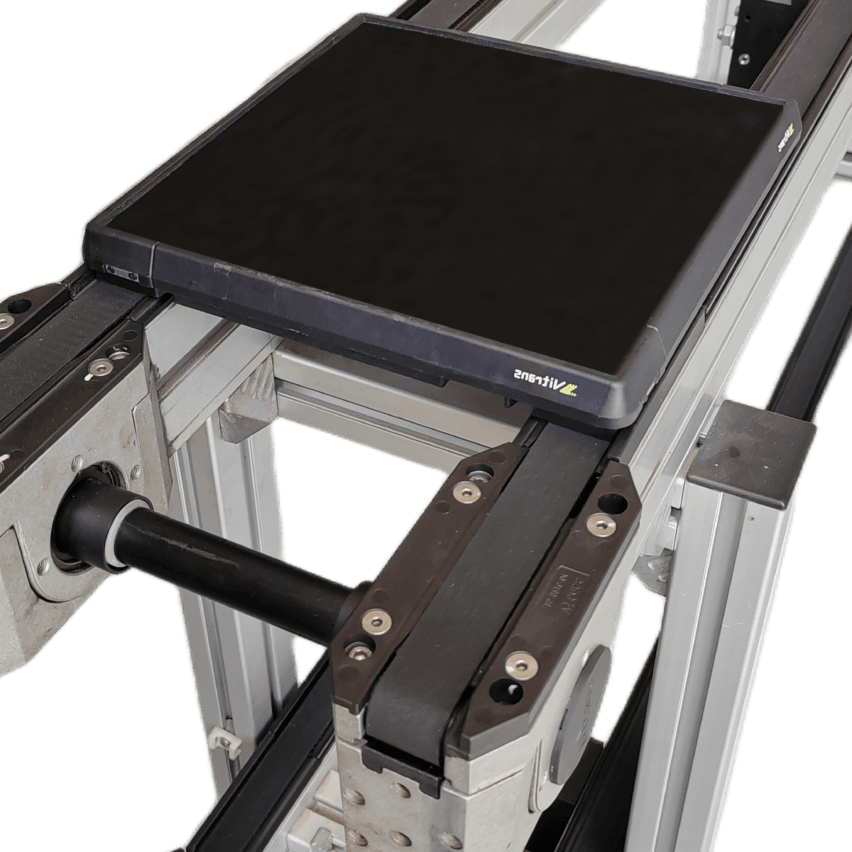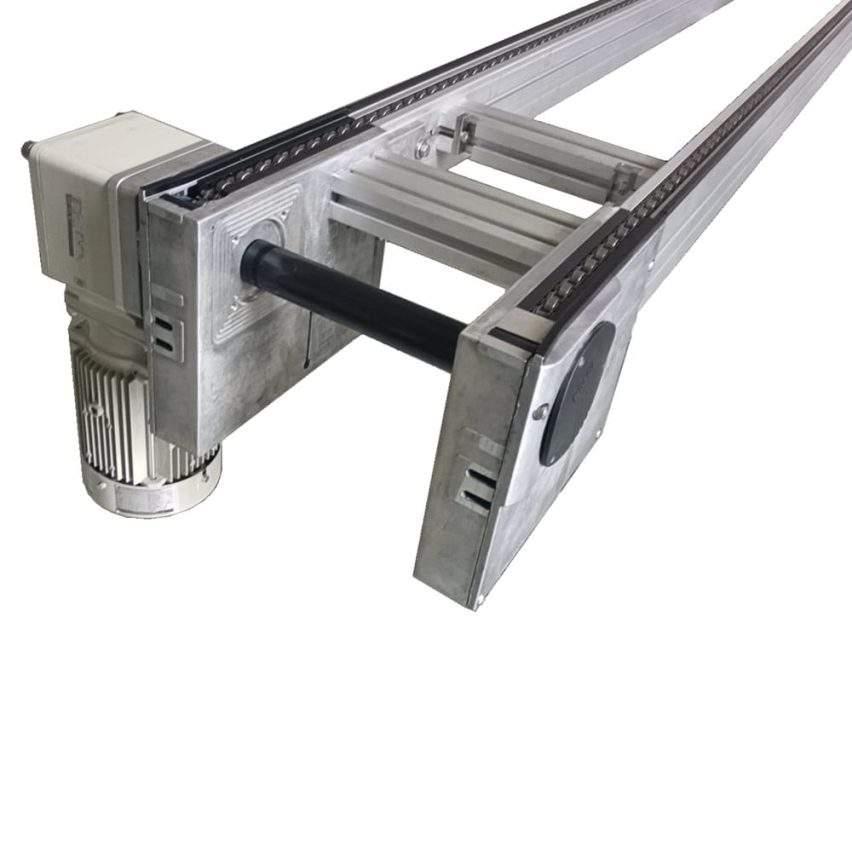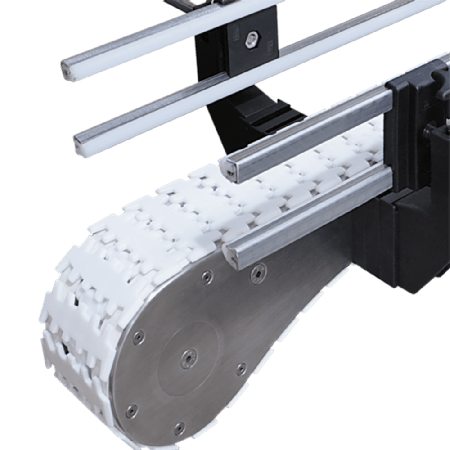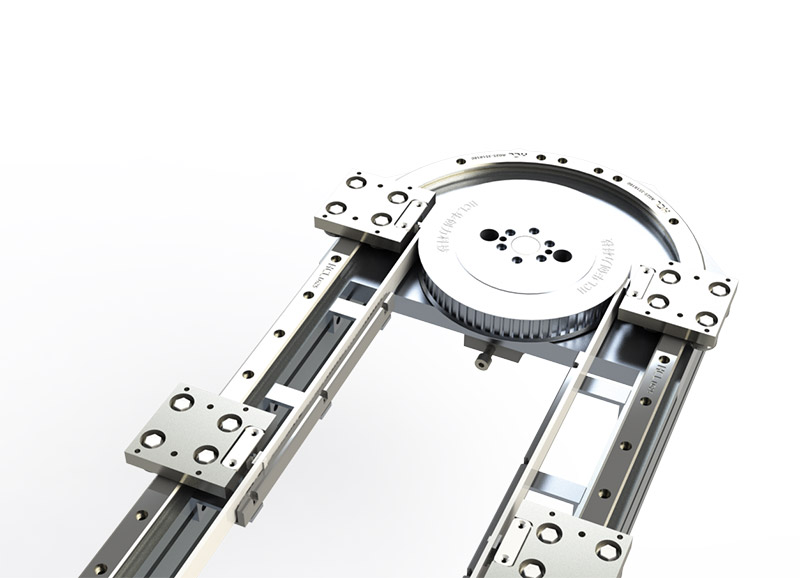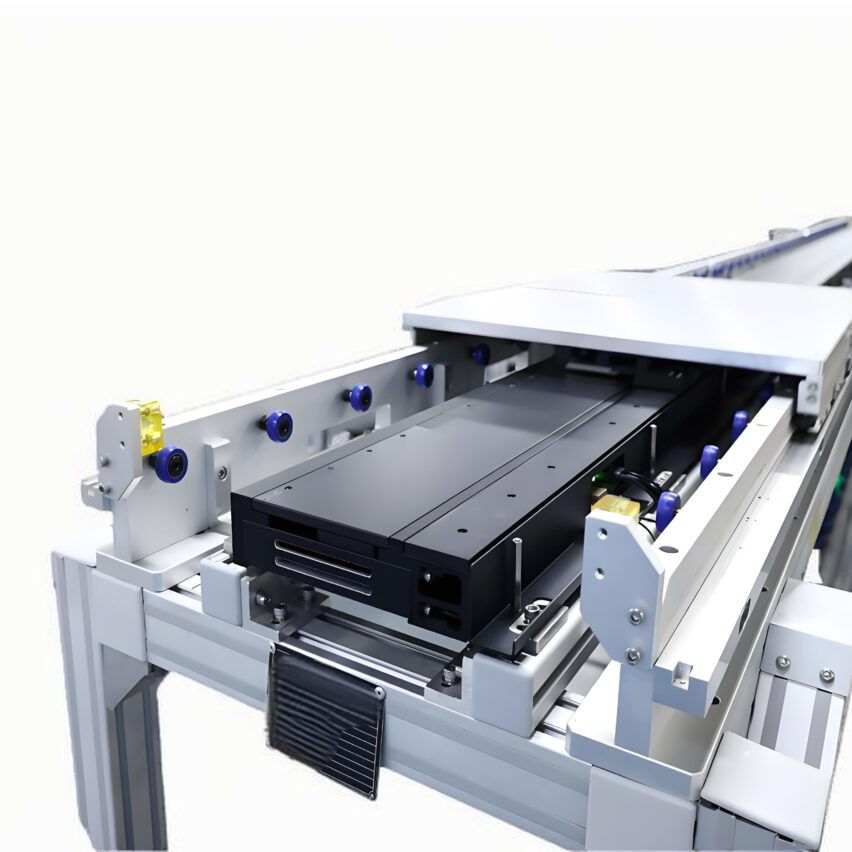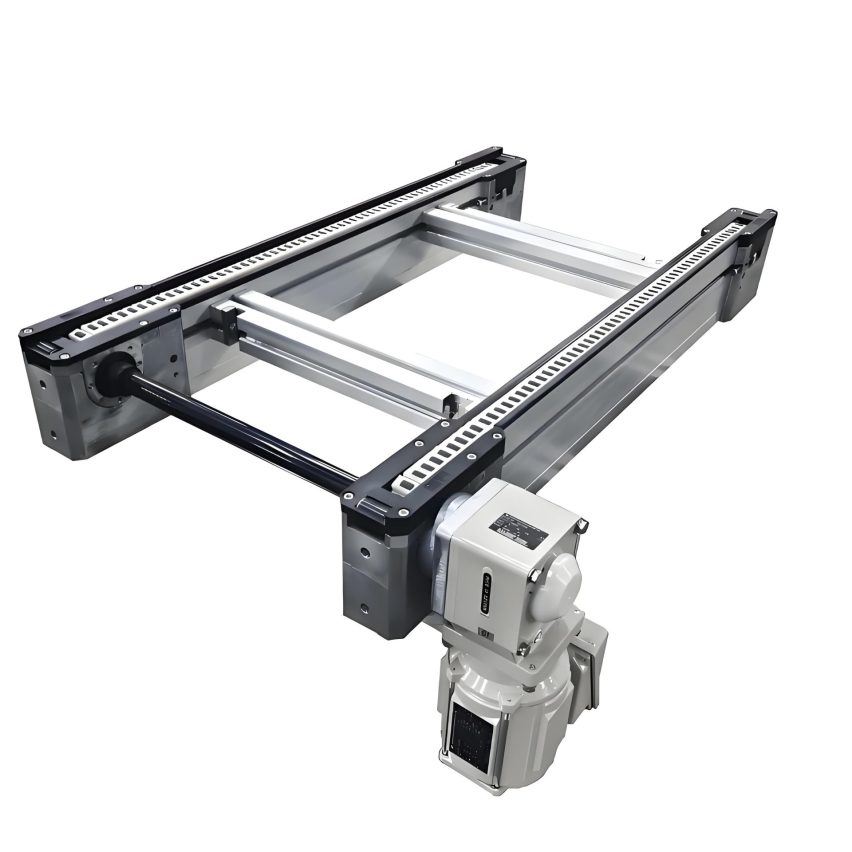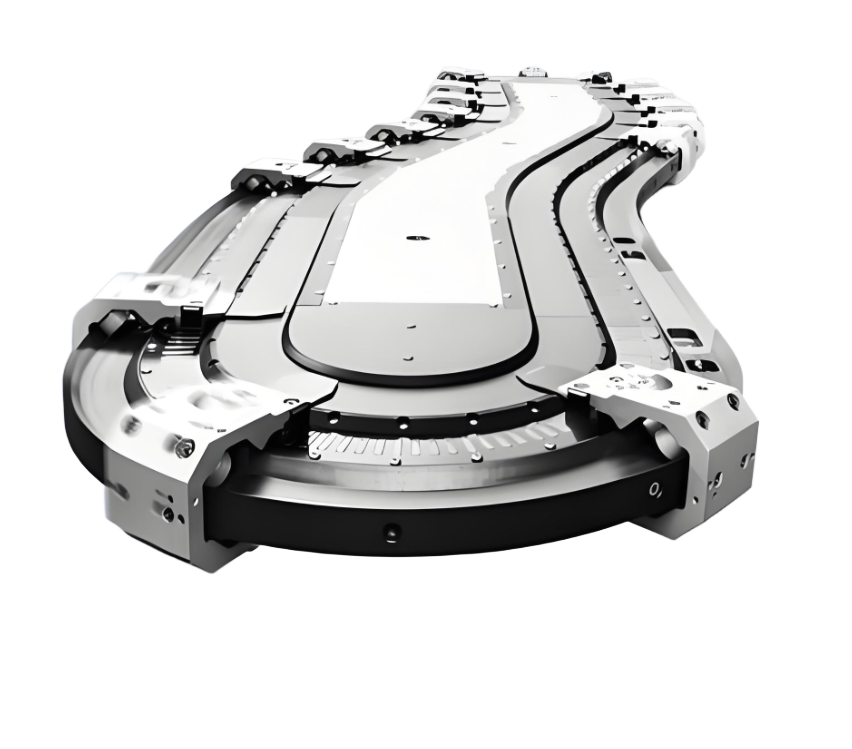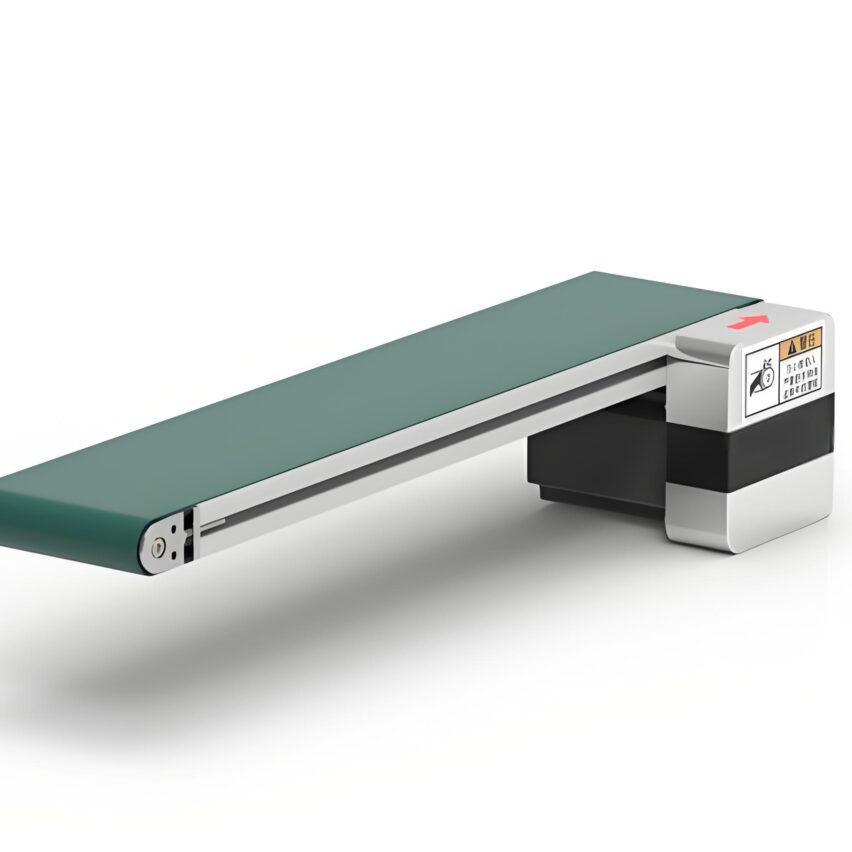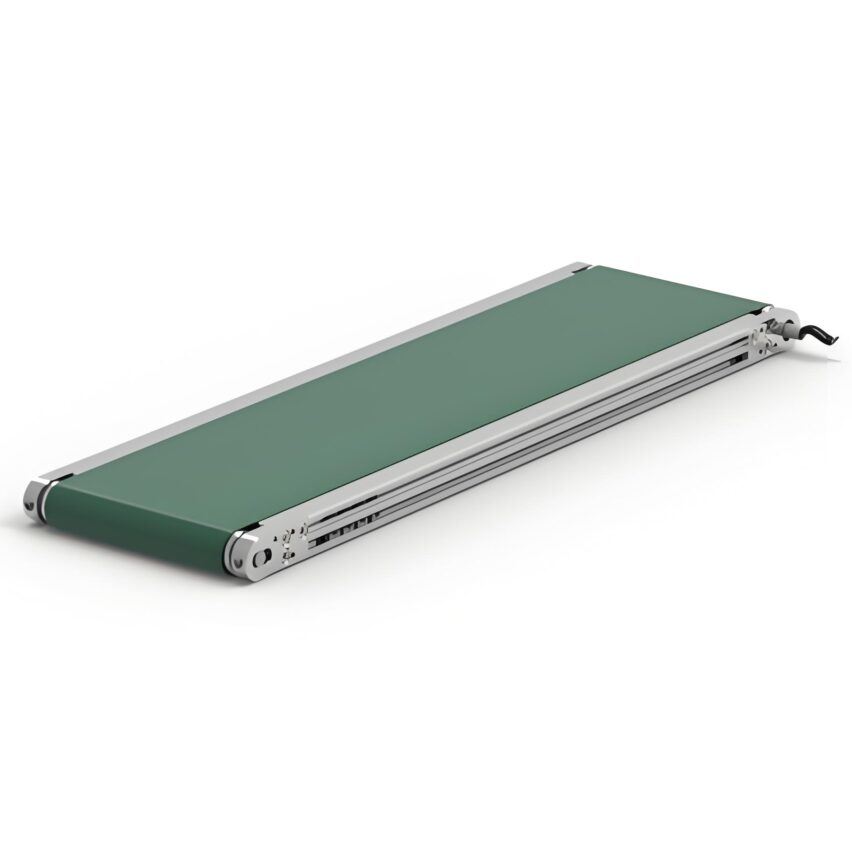I. The core of the design: a precise balance between length and load
As a typical configuration for small and medium-sized factories, the design of the 10-metre Speed Chain Conveyor Line is centred onPrecise matching of space efficiency to dynamic loads. Compared with the ultra-long line body (>25m), 10m length avoids the complexity of multi-segment drive, and a single 2.2kW motor can meet the demand of 0-15m/min speed regulation. However, short-distance conveying is very important forTension controlHigher demands are made - if the tension deviation exceeds ±10%, it can lead to chain jumping or abnormal wear of the rollers.
Design guidelines for key parameters::
- load distributionSingle point load ≤500kg, total load is recommended to be controlled within 800kg to avoid central sagging >0.5mm/m.
- Speed ratio optimisation3x speed chain (roller diameter D=40mm/roller diameter d=20mm) is the most preferred option, which allows speeds of up to 3 times the base speed of the chain while maintaining stability.
- turning radiusU-shaped layout: the minimum radius should be ≥ 300mm to prevent centrifugal slip of the workpiece.
An auto parts factory measured data: 10 m line body using distributed load-bearing columns (spacing 1.2 m), 1 tonne full load under the deformation of only 0.15 mm, compared with the unsupported structure to enhance the stiffness of 70%.
II. Structural Innovation: Modularity and Flexibility Breakthroughs
The core competencies of the 10 metre line body areRapid reconfiguration capability. Achieved through three technological innovations:
- Rotatable workpiece plate360° rotating chassis + anti-static coating, support mobile phone motherboards and automotive ECU mixed production line, changeover time from 2 hours to 15 minutes
- Magnetic guidesModular aluminium profile rail (40 x 80mm section) with built-in strong magnetic interface, expanding length without removing bolts, increasing expansion efficiency by 90%
- Composite tensioning mechanismSpring-hydraulic dual-mode tensioner automatically compensates for chain elongation, keeping tension fluctuations within ±5%.
Material upgrades lead to jump in life expectancy::
| character radical | Traditional programmes | 10-metre line innovation programme | enhancement effect |
|---|---|---|---|
| track roller | Nylon 66 | Glass fibre reinforced polyetheretherketone | Abrasion Resistance L 300% |
| conductive system | Copper brush friction power supply | Wireless inductive power supply | Failure rate down 60% |
| fig. pattern | Carbon Steel Welding | Aluminium alloy extrusion profiles | Reduced weight 50%, corrosion resistant |
III. Intelligent control: dynamic response and energy efficiency game
The bottlenecks in short-distance transport areSpike in energy consumption due to frequent starts and stops...10-metre multiplier chain breaks through a third-order control strategy:
- PLC + inverter linkageSiemens S7-1200 PLC real-time calculation of load inertia, dynamic adjustment of ABB frequency converter output frequency, emergency stop response <0.5 seconds.
- Regenerative Brake Feedback: The kinetic energy in the deceleration section is converted into electrical energy for storage, reducing the overall energy consumption by 22% (measured data).
- Cooperative obstacle avoidance with grating: In case of intrusion of people in the laser scanning area, the system reduces the speed within 0.1 second in a graded manner, avoiding damage to the chain in case of emergency stops.
Control Algorithm Practical Cases::
make a copy ofVelocity profile optimisation equation: V_actual = V_Setting × [1 - e^(-t/τ)] (τ = 0.3 s for inertia compensation factor)After the application of this algorithm in a medical device factory, the positioning accuracy of the workpiece was improved from ±1mm to ±0.3mm, and the heat generated by the 38% drive motor was reduced at the same time.
IV. Installation pitfalls: engineering challenges specific to the 10-metre line
resonance instabilityIs the biggest invisible killer - when the conveying speed > 12m/min, 10m line body inherent frequency (8-10Hz) will trigger resonance, amplitude soaring 400%. cracking programme:
- Damped foundation design: Concrete foundation implanted with rubber vibration isolators (damping factor 0.25), absorbing 60% of vibration energy.
- Acceleration curve remodelling: S-type acceleration and deceleration algorithm to avoid resonance intervals, which was used by a power plant to reduce 72% fault downtime
Thermal deformation compensation mechanism::
- Pre-stretching process for guide rails: 0.8mm/m allowance for thermal expansion during installation.
- Temperature sensing closed loop: real-time monitoring of the temperature rise of the guideway, every 10 ℃ automatically fine-tune the tensioning force.
V. Industry customisation: from 3C electronics to food and medicine
3C Electronic Assembly Scene::
- Anti-static version: surface resistance 10⁶Ω work plate + ionic wind dust removal, chip breakdown rate down to 0.001%
- Beat control: blocking time per station ≤ 15 seconds, support 6 stations parallel operation
Food filling line modification::
make a copy of1. Stainless steel chain (FDA approved) → 2. High-pressure water washing station → 3. Hot air drying (80°C)After the application of a beverage factory, the risk of filling contamination was reduced by 90%, and the daily production capacity exceeded 30,000 bottles.
VI. The maintenance revolution: a predictive maintenance system
Traditional planned maintenance costs account for 30% of equipment life-cycle costs, while the 10-metre line through theIoT + AI PredictionsAchieving a breakthrough:
- Vibration sensors: Monitoring of chain engagement frequency deviation, 7 days advance warning of chain breakage risk
- Oil Monitoring ChipReal-time analysis of grease viscosity, extending life from 500 hours to 3000 hours.
The Three Steps of Maintenance::
- Daily inspection: laser range finder to detect chain sag (threshold ≤ 1.5%)
- Perimeter protection: torque spanner to calibrate tensioning bolts (standard value 12 N-m)
- Yearly Fix: Harmonic Analyser Diagnoses Hidden Damage to Drive Mechanisms
Ask Yourself: The Ultimate Three Questions for 10 Metre Multiplier Chains
Q1: Can the 10-metre line replace manual handling?
Cost-Effectiveness Balance Formula::
make a copy ofPayback period (months) = Total input / [Monthly labour cost x 5 - Monthly energy cost]
- Typical case: a warehouse invested $240,000 in renovation, replacing 8 porters (saving $48,000 per month), payback in 5 months
Q2: Can domestic fittings meet precision conveying?
Performance Alternatives Roadmap::
| character radical | Import indicators | Domestic leading level | Gap Closing Path |
|---|---|---|---|
| roller bearing | Lifespan 20,000 hours | 15,000 hours | Ceramic infiltrated steel process |
| PLC Modules | Response 0.1 seconds | 0.2 seconds | Enhanced real-time kernel |
| Conductive Slip Rings | Resistance 0.05Ω | 0.1Ω | Nano Silver Coating |
Conclusion: The localisation rate of conventional scenarios can reach 85%, and mixed configurations are recommended for high-precision areas.
Q3: How to upgrade the old line body intelligently?
Three-stage transformation strategy::
- Perceptual layer retrofitting: Deployment of photoelectric sensors + IO-Link module, cost <5000RMB
- control layer replacement: Conventional relay → PLC (Modbus TCP support)
- Cloud Access: 4G gateway to upload data to MES system for beat optimisation
Future Data InsightExperiments by XCMG show that - by embedding linear motor-assisted propulsion in the 10-metre line body, the energy consumption can be further reduced by 28% at 3 times the speed, which may reshape the technical standard of short-distance conveying.

